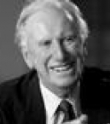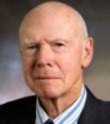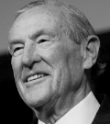Expert Panel-Fellows of the AIIA
|
 Hilary Charlesworth FAIIA-Professor, ANU; Director of Centre for International Governance and Justice Hilary Charlesworth FAIIA-Professor, ANU; Director of Centre for International Governance and Justice |
 Jocelyn Chey AM FAIIA-Visiting Professor, University of Sydney; former Consul-General in Hong Kong Jocelyn Chey AM FAIIA-Visiting Professor, University of Sydney; former Consul-General in Hong Kong |
 James Cotton FAIIA-Emeritus Professor at the University of NSW James Cotton FAIIA-Emeritus Professor at the University of NSW |
 Rawdon Dalrymple AO FAIIA-Former Visiting Professor, University of Sydney; Chairman of ASEAN Focus Group Ltd Rawdon Dalrymple AO FAIIA-Former Visiting Professor, University of Sydney; Chairman of ASEAN Focus Group Ltd |
 Graeme Dobell FAIIA-Journalist Fellow, Australian Strategic Policy Institute Graeme Dobell FAIIA-Journalist Fellow, Australian Strategic Policy Institute |
 Erika Feller FAIIA-Former UNHCR Assistant High Commissioner for Protection Erika Feller FAIIA-Former UNHCR Assistant High Commissioner for Protection |
 Janet Hunt FAIIA-Former Head of the Australian Council for Overseas Aid Janet Hunt FAIIA-Former Head of the Australian Council for Overseas Aid |
 James Ingram AO FAIIA-Former Diplomat and Head of the UN World Food Program James Ingram AO FAIIA-Former Diplomat and Head of the UN World Food Program |
 John McCarthy AO FAIIA-Former Ambassador to Japan, Indonesia, the United States, Thailand, Mexico and Vietnam John McCarthy AO FAIIA-Former Ambassador to Japan, Indonesia, the United States, Thailand, Mexico and Vietnam |
 Robert O’Neill FAIIA– Former Chichele Professor of the History of War, Oxford University Robert O’Neill FAIIA– Former Chichele Professor of the History of War, Oxford University |
 Garry Woodard FAIIA-Former Diplomat and Senior Fellow, University of Melbourne Garry Woodard FAIIA-Former Diplomat and Senior Fellow, University of Melbourne |
 Richard Woolcott FAIIA-Former Secretary of the Department of Foreign Affairs and Trade Richard Woolcott FAIIA-Former Secretary of the Department of Foreign Affairs and Trade |
Question: What are Australia’s Responsibilities in Iraq?

John McCarthy AO FAIIA |
Our interest in Iraq is and always was insufficient to be involved on the merits of that interest. The question then arises whether we should become involved to pay alliance dues. Response would be that even if one accepts alliance dues argument, we have done sufficient in Iraq and Afghanistan. My answer would be the same if the request were limited to air support (there is no sign of this and we do not know what the Americans will themselves do on air support). I have no difficulties with humanitarian aid through agencies, as has been announced. In fact would support this. |

Richard Woolcott FAIIA |
Australia has limited direct interests in Iraq. Any suggested ‘responsibilities’ now are a direct result of Howard’s erroneous decision to join the US invasion of Iraq. We should not involve ourselves further. Alliance should never be equated with automatic compliance with US policy. |

Robert O’Neill FAIIA |
We should watch and wait, and keep uppermost in our minds the thought that the whole situation there could take a very bad turn, exposing the West to major security problems for a long time. A new approach is needed. |

Rawdon Dalrymple AO FAIIA |
The essence of Australia’s policy in Iraq (under both parties) is defined by the answer to the question, ‘would Australia send troops to Iraq were it not for the desire to stand firm as an ally of the United States?’ We don’t have any essential direct interests in Iraq, nor in Afghanistan, nor any direct responsibilities. But every Australian government since Whitlam has seen it as a key national interest to demonstrate our commitment to the US alliance. |
Professor Samina Yasmeen FAIIA |
At one level I can see the logic of being part of an effort to protect the citizens of Iraq from brutality of the ISIS. But at another level I doubt if our presence (which is conditional upon the US decisions with respect to Iraq) would make much difference. Any western/US intervention would be used as evidence of the West ‘oppressing’ the Muslims by the militants, and could increase the magnitude of their barbaric acts even more so than is the case now. We could also sustain loss of lives in the process. On balance therefore, I think it is better to wait, observe and then decide the best course of action. Hasty actions on our part could lead to another road to disasters. The responsibility is to be patient and prudent and avoid hasty decisions. |

Erika Feller FAIIA |
I would make a distinction between ‘in’ and ‘to’ Iraq; also between ‘Iraq’ and ‘Iraqis’. The country has most unfortunately seen more than its fair share of ill-calculated, misguided or cynical interference from the outside. Australia’s capacity to make any serious and positive difference on the ground is very limited. Australia, in my view, can make its most constructive contribution at this point by taking a compassionate and supportive approach to addressing the enormous humanitarian fallout of current events in the Middle East. This includes being more welcoming to genuine Iraqi refugees who make it, by whatever means, to Australia. There is of course a need for careful scrutiny, but this is not incompatible with allowing those whose claims are found meritorious to stay. This is not only a humanitarian necessity in the individual case, but over the longer term it is an investment in the human capital of the country, to be drawn upon when hopefully the country comes out of this crisis. |
 James Cotton FAIIA James Cotton FAIIA |
As Secretary of State Colin Powell, advising George W Bush, observed in 2002 regarding forcible intervention in Iraq, the Pottery Barn rule applied: you break it, you own it. Following the invasion, as one of the occupying powers, Australia had an obligation under international law for the safety and security of the Iraqi population. In reality, of course, the minor Australian role was entirely conditioned by the policies of the United States, maladroit as they proved to be. When the US and Baghdad could not agree in 2011 on a military strategy that would permit the stationing of American forces in the country, many in Washington argued that responsibility for Iraqi security now lay fully in local hands. Yet the scale of death and displacement from 2003 has been so great that some responsibility must remain for the former occupying powers to discharge. However, the problem currently in framing policies to meet this responsibility is that it is their occupation that unleashed the forces now in conflict.Australia’s responsibilities in relation to Iraq also extend to the question of a proper accounting for the decision making of that time. Ten years on, the political outcome could hardly be more damaging to Australian interests. Up to 2003, Iraq was ruled by a regime, however unsavoury, antagonistic both to Iran and also to Islamic extremism. Now the country is divided between a regime aligned with Iran, and an insurgency in which Islamic extremism is the most visible force. The latter insurgency has also played an important role in the tragic civil conflict in Syria. In short, the US policy of intervention, uncritically embraced by John Howard and Alexander Downer, has had the consequence of destabilising the entire Middle East. The singular failure of policy that led to Australia’s participation in this strategy awaits its assessment. |

Hillary Charlesworth FAIIA |
In the longer term, an Australian responsibility in this context is to think through the nature of international interventions and their unintended consequences. At the time of the invasion of Iraq in 2003 little thought was given to politics in Iraq beyond the toppling of Saddam Hussein. The Coalition of the Willing believed that democracy was inevitable although regional experts warned of violent scenarios that have now been realised. We must record the lessons of this intervention and ensure they are widely understood. |
 Garry Woodard FAIIA Garry Woodard FAIIA |
The government’s responsibilities are to show that it has learned the lessons of the first Iraq disaster by:
- not repeating them,
- setting up our own Chilcot inquiry,
- acting legally,
- not making commitments by stealth, but transparently and in consultation with parliament, especially in regard to despatch of troops, even under the subterfuge of protecting embassies
- being seen to be consulting Asian countries,
- providing support for US diplomatic initiatives, including by opening up a bilateral dialogue with Iran.
|
[really_simple_share]
Past Questions
June 10, 2014
Is China Destabilising Asia?
May 9, 2014
Is the US a Dangerous Ally for Australia?
April 28, 2014
Did you find Bob Carr’s ‘Diary of a Foreign Minister’ enlightening?
April 14, 2014
Is Australia’s economic diplomacy succeeding?
April 04, 2014
Is Japan Australia’s best friend in Asia?
March 24, 2014
Three years on, has enough been done on Syria?
 Garry Woodard FAIIA
Garry Woodard FAIIA














